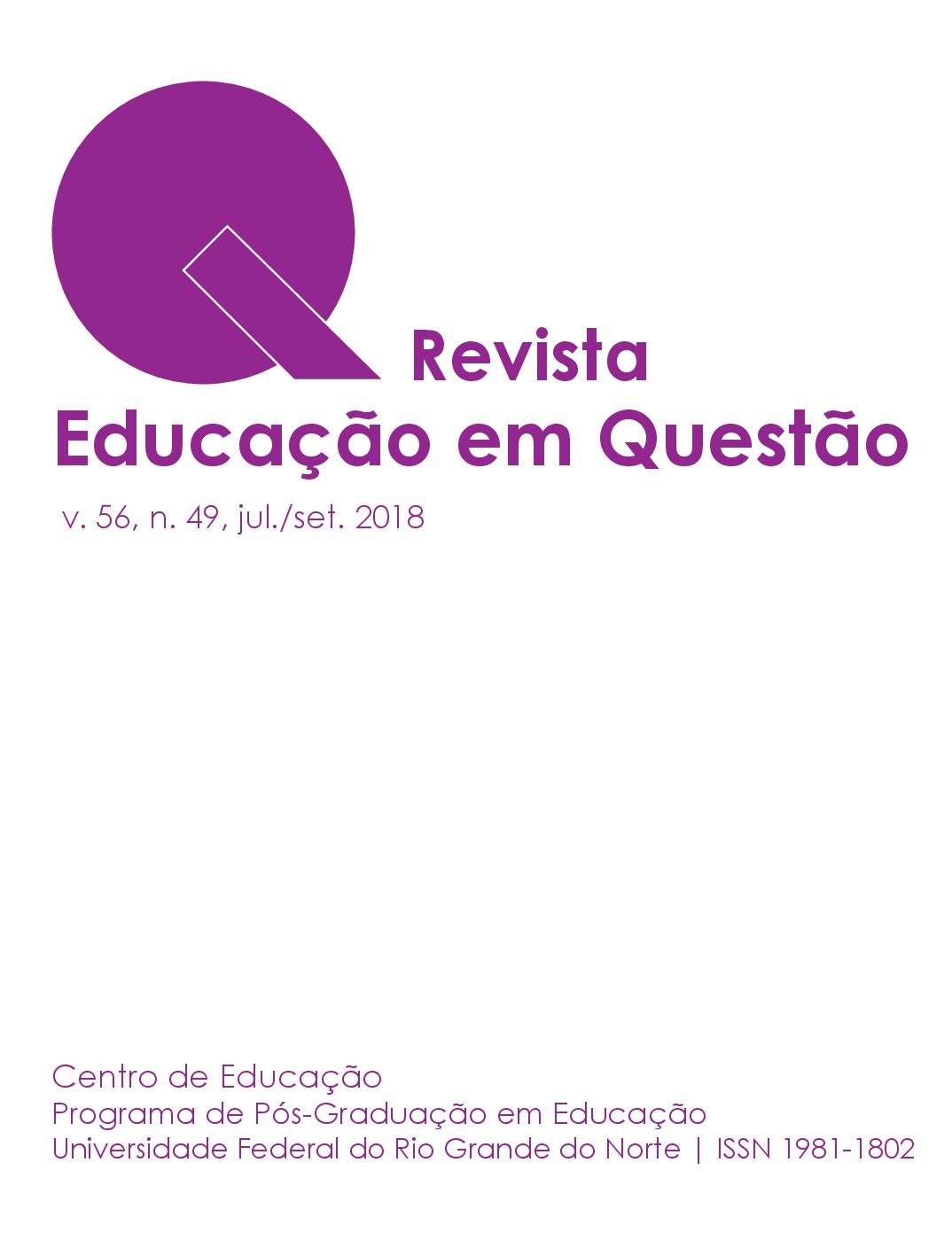From grammar to textual genres in spanish as a foreign language teaching manuals:
teaching methods
DOI:
https://doi.org/10.21680/1981-1802.2018v56n49ID14099Keywords:
Teachability, Text genres, Language conceptions, Textbook, Teaching SpanishAbstract
Our work investigates the fact that the linguistic and pedagogical relevance of textual studies in teaching materials does not guarantee the effectiveness of language teaching. The insertion of textual genres is quite strong in foreign language books. Following the theoretical principles of cognitive theories, namely the meaningful learning of David Ausubel (1968), this study goes from grammar as a symbol of a teaching conception that had the formal language, as defined by classical literature, as a goal to be achieved, up to the use of textual genres in Spanish textbooks, which mark the interactive conception of language. For this research we analyze five books. Two in great demand over the years, which were considered models in their time, and the three selected in the Programa Nacional do Livro Didático para o Ensino Médio – 2018 (National Program of the Didactic Book for High School – 2018). We conclude that the teacher, in addition to following a solid teaching plan, must add and discard elements in all types of learning materials in order to achieve learning.
Downloads
References
ARGENTINA. Ministerio de Educación. Diseño curricular de Lenguas Extranjeras 2001. Buenos Aires: Gobierno de la ciudad de Buenos Aires, 2001.
AUSUBEL,David Paul; NOVAK, Joseph Donald;HANESIAN, Helen.Educational psychology:acognitive view.Nueva York:Editora Holt, Rinehart and Winston, 1968.
BAKHTIN, Mikhail. Marxismo e filosofia da linguagem.São Paulo: Hucitec,1997.
BAKHTIN, Mikhail. Questões de estilística no ensino da língua. São Paulo: Editora 34, 2013.
BRASIL. Ministério da Educação. Secretaria da Educação Média e Tecnológica.Parâmetros Curriculares Nacionais + (PCN+) ? linguagens, códigos e suas tecnologias. Brasília: MEC, 2002.
COIMBRA, Ludmila; CHAVES, Luiza Santana. Cercanía joven. São Paulo: Editorial SM, 2016.
DEL CARMEN, Luis. El análisis y secuenciación de los contenidos educativos. Cuadernos de Educación, Barcelona, n. 21, p. 1-10, 1996.
DI TULLIO, Ángela. Manual de gramática del español. Buenos Aires: La isla de la luna, 2006.
FREITAS, Luciana Maria de Almeida; COSTA, Elzimar Goettemauer de Marins. Sentidos en lengua española. São Paulo: Richmond, 2016.
GERALDI, João Wanderley (Org.). O texto na sala de aula. São Paulo: Ática, 1984.
JIMÉNEZ, Felipe Pedraza.Vamos a hablar.São Paulo: Ática. 1995.
KOCH, Ingedore Grunfeld Vilaça.A inter-ação pela linguagem.São Paulo: Contexto, 1992.
KOCH, Ingedore Grunfeld Vilaça. Desvendando os segredos do texto.São Paulo: Cortez, 2002.
MARCUSCHI, Luis Antonio. Produção textual, análise de gêneros e compreensão. São Paulo: Parábola Editorial, 2008.
MARCUSCHI, Luis Antonio. Gênerostextuais: definição e funcionalidade. In: DIONÍSIO, Angela Paiva; MACHADO, Anna Rachel; BEZERRA, Maria Auxiliadora (Org.). Gênerostextuais e ensino. 4. ed. Rio de Janeiro: Lucerna, 2005.
Moreira, Marco Antonio. A teoria da aprendizagem significativa e sua implementação em sala de aula. Brasília: Editora da UnB, 2006.
PERIS, Ernesto Martín;BAULENAS, Neus Sans.Gente. Madrid: Difusión. 2008.
PILETTI, Nelson. Aprendizagem teoria e prática. São Paulo: Contexto, 2013.
PINHEIRO-CÔRREA, Paulo. LAGARES, Xóan. Confluencia.São Paulo: Editora Moderna, 2016.
SANCHEZ, Aquilino. Español en directo. São Paulo:SGEL, 1990.
SAUSSURE, Ferdinand. Curso de lingüística geral. Tradução Antonio Cheline; João Paulo Paes e Isidoro Blikstein. São Paulo: Cultrix, 1969
VYGOTSKY, Lev Semenovich. A construção do pensamento e da linguagem. Tradução Paulo Bezerra. São Paulo: MartinsFontes, 2001.
ROTTA, Newra Tellechea; BRIDI,César Augusto; BRIDI, Fabiane de Souza(Org.). Neurologia e aprendizagem: abordagem multidisciplinar. Porto Alegre: Artmed Editora, 2016.
Downloads
Published
How to Cite
Issue
Section
License
The Journal Education in Question shall retain the copyright in all articles that it publishes.
The authors and co-authors of articles and book reviews, published in the Journal Education in Question, shall wait for at least 1 (one) year before they are allowed to submit new works for publication.






